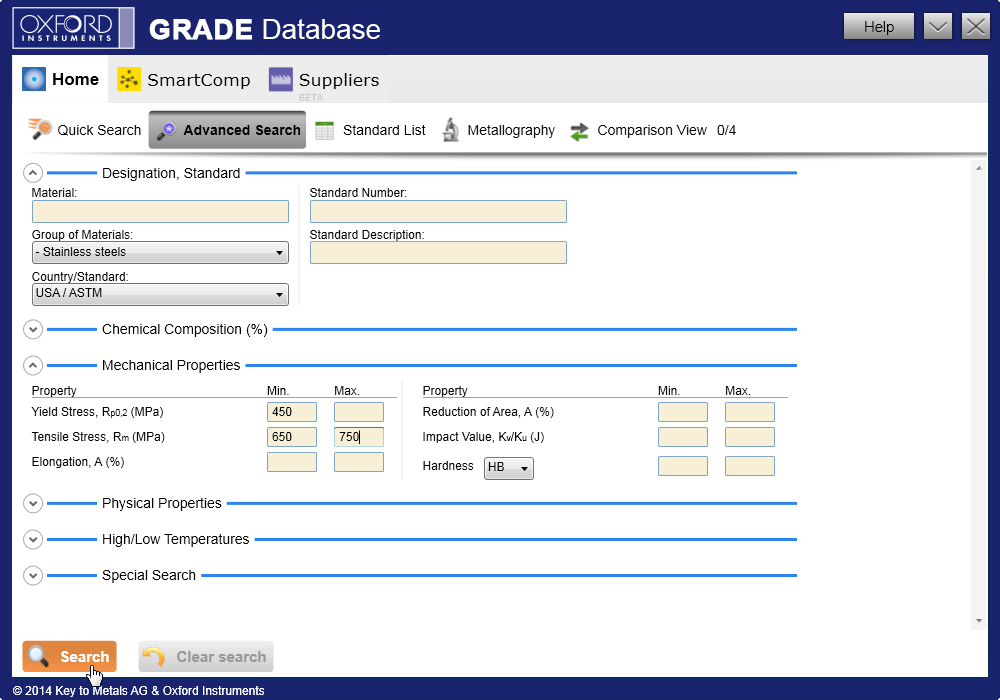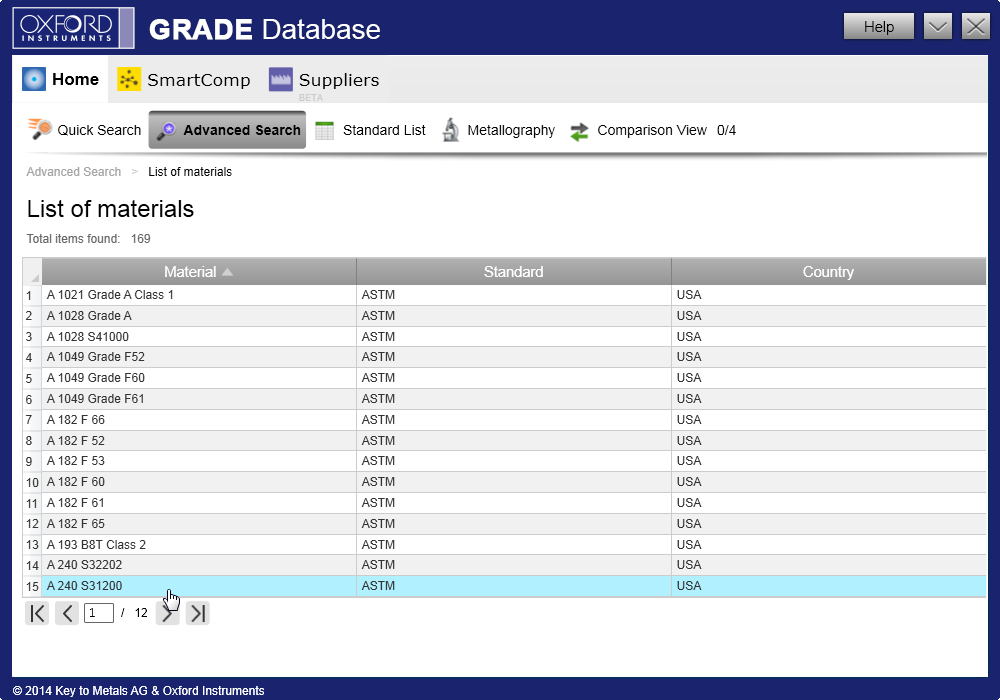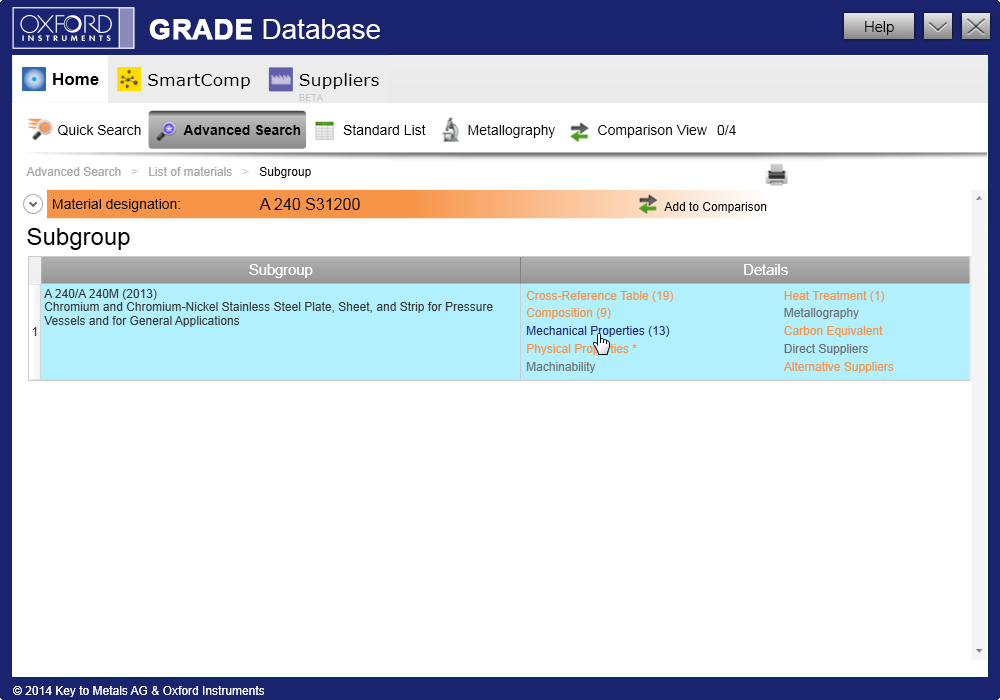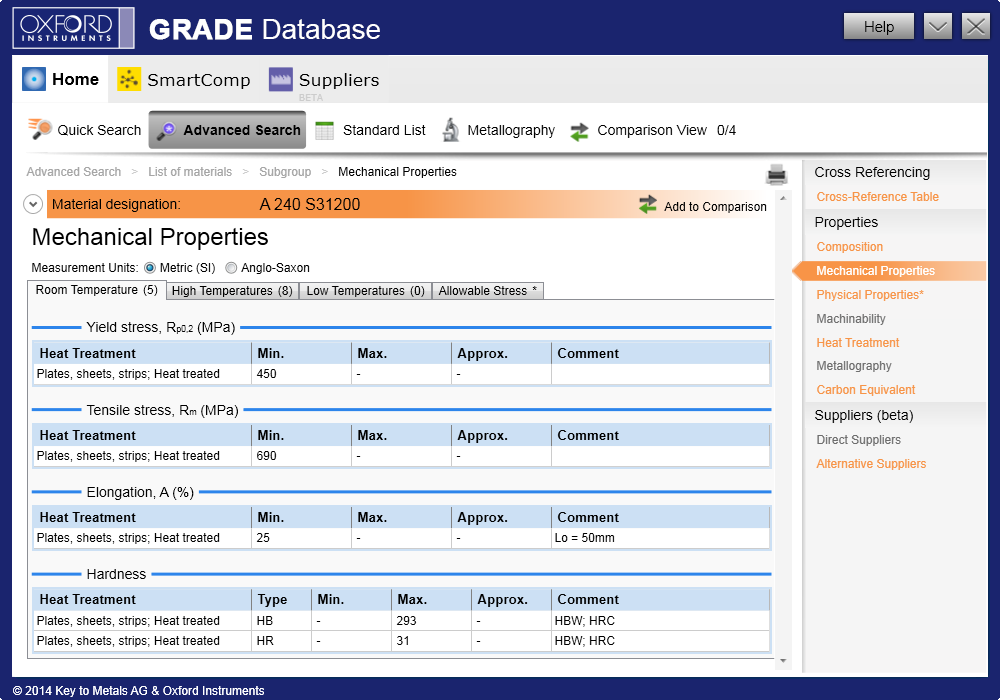
Tour 4: Searching by mechanical properties
Mechanical properties are one of the most important characteristics of steel and nonferrous materials. Selecting materials by mechanical properties is essential for engineering analysis, design, calculations and many other tasks.
Oxford Instruments Grade Database offers you incomparable selection of materials by values of their mechanical properties. From thousands of materials, you can find the material that you need in a few seconds...
... And it can be combined with the other criteria, to select a material that perfectly fits your purpose.
Step 1: Choosing a search option
Suppose that you want to find American (ASTM) stainless steels with the minimum yield stress 450 MPa and tensile stress between 650 and 750 MPa.
First you have to choose the right search option. In order to select materials by mechanical property (property: Yield stress and Tensile stress), use Advanced Search.
Step 2: Defining a search criteria
To define the search criteria, you select USA(ASTM) from the country/standard's pop-up list. To select stainless steels, you check Stainless steel check box.
In order to define yield stress and tensile stress values, check Yield stress and Tensile stress criteria, thus enabling fields for values. Then enter 450 for minimum yield stress value and 650 for minimum and 750 for maximum tensile stress value.

After you click Submit button, Oxford Instruments Grade Database will find all ASTM stainless steels that fulfil given criteria and display them in the list.
Among hundreds ASTM stainless steels, search engine selects materials that fulfil given criteria in a few seconds! Imagine how much time you will need if you use books.
Step 3: Selecting a material from the list of the results
Selecting materials by value of mechanical property generally results in a list of steel materials that satisfy given criteria. Depending on criteria you gave, this list can be quite large (up to 2000 materials), so it is displayed in pages. By using navigation buttons, you can navigate through the pages, jump to the beginning or the end of the list or go to a specific page.



If you are interested in properties of some specific material from the list, you can click on its designation. In order to find out how to view material properties, please refer to steps 4, 5 and 6 of Tour 1.